Skip to main content
- Funds
- Insights
- Capabilities
- About Us
- My Account
Our Funds
Fund Documents
Global Multi-Strategy Fund
Featured topics
Macro & Market

Stagflation watch: Thoughts on tariffs, inflation, and Fed policy
US Macro Strategist Juhi Dhawan considers signs the US economy may be moving toward a toxic mix of slowing growth and rising inflation, creating challenges for the Fed and investors.

One Big Beautiful Bill: Why it’s “buy now, pay later” for markets
Multi-Asset Strategist Nanette Abuhoff Jacobson weighs the near-term benefits of the recently enacted US tax and spending bill against the longer-term costs, and suggests several investment implications.

Weighing the economic winners and losers of the One Big Beautiful Bill Act
Macro Strategist Juhi Dhawan unpacks the impact of One Big Beautiful Bill Act, including its potential effect on economic growth, corporate earnings, and the US government deficit and debt.
URL References
Related Insights
Fixed income

Weekly Market Update
What do you need to know about the markets this week? Tune in to Paul Skinner's weekly market update for the lowdown on where the markets are and what investors should keep their eye on this week.
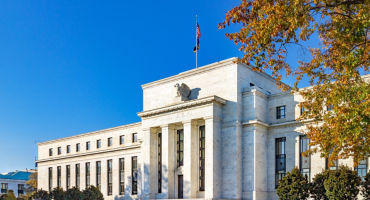
FOMC: Easing into uncertainty
Fixed Income Portfolio Manager Jeremy Forster profiles the Fed's December rate cut, labor market trends, inflation pressures, and the role of anticipated changes to FOMC leaders in 2026.

Opportunity ahead: Optimism or illusion?
Explore our latest views on risks and opportunities across global capital markets.
URL References
Related Insights
Private investing

Private credit outlook for 2026: 5 key trends
Our private credit experts discuss five themes driving the asset class’s 2026 outlook, including public/private convergence, changing credit profiles, the growth of retail, and much more.

Venture capital outlook for 2026: 5 key trends
We explore 2026's venture capital trends, highlighting IPO momentum, M&A acceleration, secondary market growth, public-private convergence, and the focus on quality investments.

Private real estate debt: An evolving opportunity set
In our latest Insurance Quick Takes video, Fixed Income and Global Insurance Strategist Amar Reganti talks to Ravi Anand, Portfolio Manager and Head of Private Real Estate Credit. They discuss trends driving interest in private real estate and the diversification opportunity the asset class may offer insurers.
URL References
Related Insights
Wellington experts
URL References
Related Insights
Stay up to date with the latest market insights and our point of view.

The three drivers of resilient portfolios in 2026
What does a world of lower forward-looking return expectations mean for portfolios in 2026? For Head of Solutions Natasha Brook-Walters, it suggests a deliberate, targeted approach to portfolio construction and a focus on three key areas: the role of alpha, the role of income and the role of uncorrelated return streams.

Elections, earnings, and global stimulus driving returns
With strong results across the major asset classes, 2025 may be a hard act to follow. Our experts discuss the factors shaping their outlook for stocks, bonds, and commodities, from earnings growth to political winds.

Weekly Market Update
What do you need to know about the markets this week? Tune in to Paul Skinner's weekly market update for the lowdown on where the markets are and what investors should keep their eye on this week.

FOMC: Easing into uncertainty
Fixed Income Portfolio Manager Jeremy Forster profiles the Fed's December rate cut, labor market trends, inflation pressures, and the role of anticipated changes to FOMC leaders in 2026.

Opportunity ahead: Optimism or illusion?
Explore our latest views on risks and opportunities across global capital markets.

Financing the AI boom: credit markets at a crossroads
Fixed Income Portfolio Manager Derek Hynes and Fixed Income Investment Specialist Will Prentis examine how the AI financing boom is transforming credit markets and discuss the opportunities and risks it creates for investors.

Asset Allocation Outlook
How to evolve your portfolio for the latest market conditions? Explore the latest monthly snapshot of Wellington Solutions' asset class views.

Inflation, volatility, and valuations: 3 reasons hedge funds fit today’s market
Our multi-asset strategists explain why economic and market conditions in the year ahead could make a compelling case for adding hedge funds to the asset allocation mix, including multi-strategy and equity long/short hedge funds.

The power of Asia’s dividends
Discover Asia’s quality dividend potential. With diverse income sources, structural tailwinds, and governance reforms at play, Asia offers a compelling mix of income, resilience, and long-term growth potential.

Private credit outlook for 2026: 5 key trends
Our private credit experts discuss five themes driving the asset class’s 2026 outlook, including public/private convergence, changing credit profiles, the growth of retail, and much more.

Venture capital outlook for 2026: 5 key trends
We explore 2026's venture capital trends, highlighting IPO momentum, M&A acceleration, secondary market growth, public-private convergence, and the focus on quality investments.

The rising tide of AI: How it could lift US productivity, growth, and profits
From an economic and market standpoint, a lot is riding on the future of artificial intelligence. Macro Strategist Juhi Dhawan sees plenty of reasons for excitement but also a need for patience along the way.

Are hedge funds the missing ingredient?
Inflation, volatility, and valuations — they all raise questions about portfolio diversification and resilience. Multi-Asset Strategists Nanette Abuhoff Jacobson and Adam Berger explain why multi-strategy and equity long/short hedge funds could provide the answers. They offer insights on adding allocations to a traditional portfolio mix and a recipe for manager selection.

Broadening underway? 6 equity ideas for 2026
Andrew Heiskell and Nicolas Wylenzek see 6 key themes ahead for equity investors in 2026, including the durability of the AI investment cycle, the broadening of earnings growth beyond mega-caps, the potential for renewed value in international diversification and the growing need for equity investors to rethink risk hedging beyond bonds.

Low tide, sharp eyes: What to pick up
Fixed Income Managers Campe Goodman and Rob Burn share their outlook for credit in 2026 and discuss how investors can reposition for an environment where opportunities are harder to find.

Finding durable value amid shifting currents
Fixed Income Strategist Amar Reganti and Investment Director Marco Giordano explore how to approach bond investing in 2026. They see durable value for investors who can flexibly adjust to the shifting currents ahead.

Private real estate debt: An evolving opportunity set
In our latest Insurance Quick Takes video, Fixed Income and Global Insurance Strategist Amar Reganti talks to Ravi Anand, Portfolio Manager and Head of Private Real Estate Credit. They discuss trends driving interest in private real estate and the diversification opportunity the asset class may offer insurers.

Sustainable commodities: Rethinking investment strategies for a changing climate
As climate change and the energy transition reshape global markets, commodities are gaining renewed attention as inflation hedges and portfolio diversifiers. This article introduces a climate integration framework for evaluating commodity investments through both sustainability and financial lenses.

Is AI taking over? Portfolio and productivity insights for asset allocators
Amid questions about corporate spending, valuations, and technology exposure, Global Industry Analyst Brian Barbetta and Multi-Asset Strategist Adam Berger take a deep dive on the AI landscape, offering investment insights and ideas for using AI to improve productivity.

Investing in climate solutions across public and private markets
Collaboration between public and private market investors can be powerful. Opportunities where expertise and resources can be shared to accelerate innovation and deployment are optimal. Our experts explore how AI, geopolitics, and global policy are reshaping climate solutions across sectors.

Transition at risk: Checking in on corporate decarbonization progress
Corporate climate transitions face ambition-execution gaps. Success requires integrating decarbonization into business strategy, focusing on emissions, pragmatic Scope 3 approaches, transparency, and credible plans. See how our experts are thinking about this.

Rapid Fire Questions with Ross Dilkes
In this edition of “Rapid Fire Questions,” fixed income portfolio manager Ross Dilkes shares his views on the Asia credit market—covering the macro outlook, China’s momentum, the most compelling opportunities across the region, and key risks shaping the next 12 months.

What does the new economic era mean for equities?
The twists and turns of 2025 have reinforced the sense that the global economy is undergoing a structural shift — towards higher inflation, more volatile business cycles and a potential gradual unwinding of decades-long globalisation. However, with flexibility and careful positioning, there are reasons to be positive about the outlook for global equities

Investing in 2026: prepare for inflationary growth
Macro Strategists John Butler and Eoin O'Callaghan share their annual macro outlook and discuss likely implications for markets and investors. They outline four potential scenarios graded by level of probability.

Rapid Fire Questions with Philip Brooks on Asian equities
In this edition of “Rapid Fire Questions,” Philip Brooks, investment director and equity strategist, answers key questions on Asian equities—exploring the structural drivers of the asset class, the traits of quality businesses, and the most compelling quality dividend opportunities today.

Human capital management for private companies
We discuss why effective people management is critical for private companies and outline four strategic focus areas that can help companies navigate evolving employee needs, regulatory changes, and investor expectations.

Is all that glitters still gold?
Gold has delivered impressive gains thus far in 2025, but what does that say about market risks and the recent strong returns of stocks? Multi-Asset Strategist Nanette Abuhoff Jacobson offers her take on the precious metal and the case for diversification in today’s market.

Questioning US credit quality
Fixed income strategist Amar Reganti examines questions surrounding US creditworthiness.

Chart in Focus: Is AI a bubble, or is it driving real market value?
AI isn't just about the hype. Our experts explain why this innovation is driving real market value and lay out the investment implications.

Broadening impact through multi-theme fixed income investments
Multi-theme fixed income impact investments can drive sustainable development by aligning with multiple Sustainable Development Goals, ensuring broad-based impact.
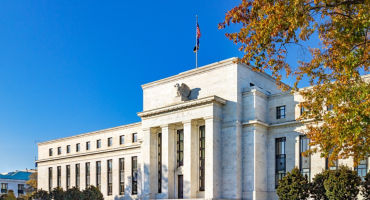
Chart in Focus: Is the Fed rate cut positive for risk?
In this edition of Chart in Focus, we examine how the Fed’s long-awaited interest rate cut may influence risk assets.

Chart in Focus: Three reasons to keep the faith in US credit quality
Our fixed income experts highlight the resilience of US institutional credibility.

Japan's reflation story: An overlooked equity opportunity?
Macro Strategist Nick Wylenzek analyzes the structural shifts in Japan's economy and identifies potential equity opportunities.

What’s the Fed got to do with it? The impact of rate cuts on CLO equity
Our CLO experts discuss the implications of Fed rate cuts on CLO equity, emphasizing its potential to maintain income amidst rate sensitivity challenges in other credit assets.

Chart in focus: What tech in 2000 teaches us about tomorrow
In this Chart in Focus, Equity Strategist Andrew Heiskell illustrates what 2000s tech can teach us about AI and innovation today and tomorrow.
What markets are missing on critical minerals
Geopolitical Strategist Thomas Mucha highlights the importance of critical minerals in US-China relations, details the impact on global markets, and identifies the investment implications.

Quarterly Market Review — 3Q2025
A monthly update on equity, fixed income, currency, and commodity markets.

Commercial real estate debt: Transitional assets deep dive
Our private commercial real estate debt experts explore transitional CRE assets, highlighting their key characteristics, how they differ from other parts of the CRE debt universe, their potential roles in a portfolio, and much more.

Long bonds could become a diversifier once again
Despite a challenging 15 years, long bonds represent a valuation opportunity. Brij Khurana explains why long-term yields may not last, offering asset allocators a reason to rethink the diversification potential of long-maturity bonds.

Not all AI opportunities are created equal
Global Industry Analyst Michael Masdea explores AI's transformative power and shares a five-step framework to help evaluate potential long-term AI success stories.

Time to diversify your diversifiers with hedge funds?
Christopher Perret highlights potential benefits of adding uncorrelated strategies, such as hedge funds, to portfolios to navigate turbulent markets.

Rapid Fire Questions with Alex Chambers
In this edition of “Rapid Fire Questions,” Director of Alternatives, Hedge Funds, APAC, Alex Chambers answers four key questions on the role and opportunities of hedge funds in today’s market.

Venture and growth equity: The future of private-market evergreen funds?
Investment Director Cara Hubbard highlights how the VC and growth equity landscapes are transforming, details the rising popularity of evergreen funds, and shares how these themes may converge to expand access to private markets.

Rational exuberance: Will the bulls keep running?
Tariffs, fiscal challenges, geopolitical turmoil — lately, nothing has seemed to get the market down. We consider how long the good times may last in our quarterly look at the equity, bond, and commodities markets.

Finding climate investment opportunities amid shifting US policy
We delve into the evolving landscape for climate investments in the US and explain areas of overlap between government policy, corporate commercial interests, and climate focus.

Chart in focus: Three reasons to revisit emerging markets
Multi-Asset Strategist Nanette Abuhoff-Jacobson illustrates the case for emerging markets in three charts.

Investment-grade private credit market deep dive
Emeka Onukwugha and Elisabeth Perenick explore the evolving investment-grade private credit market, highlighting its key characteristics, liquidity profile, roles in a portfolio, and much more.

Rotations and reallocations: Rethinking equities
Since April's Liberation Day, equity markets have recovered losses and appear to be on an upwards trajectory. But under the surface of the highs, argues Equity Strategist Andrew Heiskell, is a market and an economy looking for direction. Why is the economy so stuck?

Chart in Focus: What do higher long-end yields mean?
Long-end yields have climbed on concerns over structural growth and fiscal expansion. In this edition of Chart in Focus, we explore how shifting yield curves are reshaping opportunities across asset classes.

The long-term rewards of a contrarian approach to European equities
Portfolio Manager Tom Horsey and Investment Director Thomas Kramer explain why viewing European equities through a contrarian lens could help investors to uncover long-term opportunities in a rapidly evolving Europe.
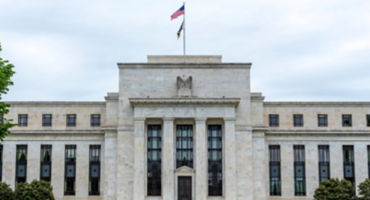
Chart in Focus: Fed rate cuts resume — What’s next for investors?
In this edition of Chart in Focus, we explore the Fed’s return to rate cuts after a strategic pause. We examine how this move, alongside diverging central banks paths, could shape the outlook for risk assets.

New regime, new reality for investors?
The first half of 2025 has reinforced our view that we are entering a new investing regime. But this isn't a clean break from one regime to another; it's a messy, transitional phase, where some old rules still apply, even as new ones might be emerging. How can investors evolve for a new market environment?

Rapid Fire Questions with Tim Manning
In this edition of “Rapid Fire Questions,” equity portfolio manager Tim Manning offers his views on rates, fiscal policy, tariffs, and AI — and shares why he remains constructive on the US equity market.

Growth vs stability: do infrastructure investors really have to pick a side?
There’s a buzz around infrastructure at the moment. But do listed infrastructure investors really have to invest in cyclical businesses in order to benefit from structural tailwinds? Tom Levering and Joy Perry explore another way.

The Fed architecture under scrutiny: What are the investment implications?
Macro Strategist Juhi Dhawan looks at how changes in the Federal Reserve's personnel and decision making could impact policy, the US dollar, and financial markets.

FOMC: Cushioning the US labor market
Fixed Income Portfolio Manager Jeremy Forster analyzes the Fed's decision to cut interest rates at the September FOMC meeting.

A look under the hood: US consumer holding up amid volatility
Fixed Income Portfolio Manager Kyra Fecteau dissects several key consumer credit trends and explains how they could have an outsized influence on the overall performance of securitized credit markets going forward.

Evaluating human capital management amid AI adoption: A guide for investors
This guide explores the critical role of HCM in maximizing AI's potential benefits, from productivity to innovation. Wellington ESG analyst Caroline Conway also provides targeted engagement questions to ask management teams as they navigate their AI journey.

How a changing Europe is reshaping credit markets
Portfolio Managers Derek Hynes and Konstantin Leidman explore how a changing Europe is reshaping the region's credit markets and identify key takeaways for investors.

Five ways to find opportunity in a new world (dis)order
Geopolitical Strategist Thomas Mucha analyzes the investment implications of five global themes that speak to the need for strategic adaptation in a turbulent world.

Brave New World: “US vs them” world order emerges
Geopolitical Strategist Thomas Mucha profiles the shifts signaling increased global policy friction and national security related opportunities for investors.

Chart in Focus: Are today’s equity returns too high?
In this edition of Chart in Focus, we examine the strength of markets so far this year, placing it in historical context.

Chart in Focus: Where are rates headed?
In this edition of Chart in Focus, we take a look at where rates have been headed and potential implications moving forward.
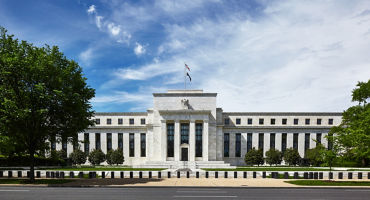
Is it time to prepare for stagflation?
Discover why concerns about stagflation are rising, and how asset allocators may be able to hedge the effects on their portfolio.

Chart in Focus: Earnings upgrades fueled the recent US equity market rally
Where are earnings heading? In this edition of Chart in Focus, we address the recent uptick in earnings expectations and its potential impact on equity returns.

Collaboration in practice: Late-stage growth
Matt Witheiler, Head of Late-stage Growth, explores the impact of Wellington’s collaborative culture. He highlights the potential benefits of working with his private-market colleagues across sectors and stages as well as leveraging Wellington’s hundreds of public-market experts.

Twilight zone: how to interpret today’s uncertain macro picture
Macro Strategist John Butler and Investment Director Marco Giordano explore how to interpret today’s uncertain macroeconomic picture and its key implications.

Collaboration in practice: Late-stage biotech
Nilesh Kumar, Head of Biotech Private Investing, explores how working with Wellington’s public-market biotech experts helps his team better understand the feasibility of emerging biotech innovations.

Chart in Focus: Are higher valuations justified?
Since Liberation Day, a clearer picture on tariffs has begun to emerge and markets have rallied in response. In this edition of Chart in Focus, we revisit cross-asset valuations and examine if the higher valuations are justified.

Integrating end-beneficiary insights into impact investing: Microfinance case study
Louisa Boltz and Oyin Oduya join with Pranav Sridhar from 60 Decibels to examine best practices for bringing end-beneficiary insights into impact investing.

Multi-asset credit: Evergreen anchor in an age of volatility and divergence
Investment Director Raina Dunkelberger explores the benefits of a multi-asset credit approach, highlighting diversification and risk-adjusted returns in today's volatile fixed income landscape.

Rethinking the Fed’s dual mandate
Is it time for a fresh perspective on the dual mandate? Fixed Income Portfolio Manager Brij Khurana explores the potential benefits of reorienting monetary policy toward maximizing productivity.

CCC junk bonds appear undervalued and overlooked
Fixed Income Portfolio manager and Credit Analyst Blake Huynh and Investment Director Nick Leichtman highlight CCC bonds' potential amid tight spreads and market dynamics.

Private credit roundtable: The role of covenants
Our private credit team explores the evolving role of covenants in today’s private credit landscape, highlighting their continued importance despite differing availability in specific markets.

AI and national security: What markets are missing
Geopolitical Strategist Thomas Mucha analyzes the role of AI in shifting national security dynamics and its influence on future investment strategies.

(Re)emerging markets: 10 reasons for optimism
Our experts identify 10 reasons why now may be the time for investors to reconsider emerging markets.

Collaboration in practice: Climate venture capital
Greg Wasserman, Head of Private Climate Investing, highlights the importance of collaborating with Wellington’s later-stage private market investors and public market experts to better understand best practices, valuation, exit opportunities, and more.

Collaboration in practice: Early-stage venture
Jackson Cummings, head of Wellington Access Ventures, outlines how collaborating with our later-stage private teams, public market industry analysts, and Value Creation Team can benefit his early-stage venture team.

Commercial real estate debt market update
Our private credit team discusses the CRE debt market's growth, evolving dynamics, and opportunities for private lenders amid higher rates and reset valuations.

Chart in focus: What does a weak US dollar mean for global investors?
In this Chart in Focus, we illustrate how the power of the US dollar in 2025 stacks up against the past fifty-plus years. Learn what we're watching and understand the global investment implications of a weaker USD.

Stagflation watch: Thoughts on tariffs, inflation, and Fed policy
US Macro Strategist Juhi Dhawan considers signs the US economy may be moving toward a toxic mix of slowing growth and rising inflation, creating challenges for the Fed and investors.

China’s changing: Why you should be watching
Macro Strategist Johnny Yu discusses structural shifts in China impacting global investment dynamics. notably diminished importance of the property sector and collapse of imports.

Chart in Focus: Is growth investing still dominating?
Growth isn't global? In this edition of Chart in Focus, we compare the performance of value vs. growth stocks globally, highlighting the contrast by region, and in turn explore the implications for style investing.

Rapid Fire Questions with Philip Brooks (Part 2)
In part 2 of his “Rapid Fire Questions”, equity strategist Philip Brooks shares his views on 3 key questions, focusing on the topic of Quality and investible opportunities today in US and abroad.

Still climbing, just slower
Members of our Insurance team share the key themes behind their cautiously optimistic outlook for the second half of 2025 and the implications for reserve-backing and surplus fixed income, as well as other major asset classes.

Understanding private equity performance
We dive deep on best practices for measuring and benchmarking private equity performance. In addition, we outline the J-curve and the impact of fund lifecycle on returns.

Wellington Venture Summit
The Wellington Venture Summit brings our portfolio companies the breadth of our investment expertise and networks under one roof. Watch highlights from the summit on preparing to go public, fundraising your next round, and much more.

One Big Beautiful Bill: Why it’s “buy now, pay later” for markets
Multi-Asset Strategist Nanette Abuhoff Jacobson weighs the near-term benefits of the recently enacted US tax and spending bill against the longer-term costs, and suggests several investment implications.

Weighing the economic winners and losers of the One Big Beautiful Bill Act
Macro Strategist Juhi Dhawan unpacks the impact of One Big Beautiful Bill Act, including its potential effect on economic growth, corporate earnings, and the US government deficit and debt.

AI isn’t like other tech cycles — and investors may need a new approach
AI may dominate headlines and strategy decks but people may still be underestimating its potential for disruption. What makes AI so different to other tech cycles?

Rapid Fire Questions with Philip Brooks (Part 1)
In part 1 of his “Rapid Fire Questions”, equity strategist Philip Brooks shares his views on 3 key questions, focusing on market outlook and risks.

The long and short (term) of markets
Head of Multi-Asset Strategy Adam Berger offers a four-part plan for short-term volatility and looks at the longer-term implications of shifting capital market expectations.

Allocating to alternatives: A role-based guide for corporate DB plans
For corporate plan sponsors thinking about weaving hedge funds and private equity into their portfolios, we offer this brief guide to the potential benefits and key considerations when establishing an allocation, including liquidity stress testing.

Agile approach important amid market desynchronization
Global markets are desynchronizing, with macro volatility and intervention from governments leading to diverging economic outcomes. Increased dispersion may facilitate more frequent rotation on market leaders, as these charts from Alex King and Joshua Riefler help illustrate.

Facing a new economic reality
We summarize our 2025 mid-year outlooks.

IPOs aren’t dead, they’re just napping
Experts from our venture capital and trading teams explore the current IPO landscape. They highlight three challenges and three opportunities for private companies aiming to go public today.

Japan’s banking sector outlook: Alpha up ahead?
Olivia Hurley and Rie Kimoto explore Japan's banking sector, highlighting regional banks' undervaluation and M&A opportunities driven by regulatory changes and demographic shifts.

Still opportunities in European equities? Positioning is key
Macro Strategist Nicolas Wylenzek revisits the case for European equities and discusses why positioning can help optimise exposure to Europe’s accelerating regime change.

Severance: The split between the economy and the markets
While markets have bounced back since Liberation Day, policy changes and macro data bear watching. Heading into the second half of 2025, we're focused on relative opportunities across asset classes created by disconnects and divides between markets and economies.

Building the future: Advances in AI infrastructure for autonomous agents
Van Jones highlights AI infrastructure advancements, emphasizing emerging protocols and data solutions for autonomous agents driving innovation and connectivity.

CLOs and the growth of private credit
Alyssa Irving profiles private credit's influence on CLOs, focusing on its ability to refinance lower-quality issuers and the potential benefits for the broadly syndicated market.

Venture capital mid-year outlook: Five key questions
Our venture capital team explores the state of the IPO market, M&A uncertainty, the growth of secondaries, and more.

Loans from Federal Home Loan Banks: An opportunity for US insurers to enhance investment yield and total return
Learn why we believe FHLB loans provide compelling potential for insurers to add alpha or increase yield by borrowing at low rates and benefitting from possible favorable treatment by ratings agencies. In addition, explore examples of customized investment solutions that have the potential to capitalize on these advantages.

10 reasons why China could be the next rerating story
Portfolio Manager Bo Meunier, Investment Director Irmak Surenkok and Investment Specialist Gilbert Chen set out 10 reasons why China could be the next rerating story to watch.

The power of positive and pragmatic thinking
While markets have a lot to worry about, from government policy to geopolitics, Global Investment and Multi-Asset Strategist Nanette Abuhoff Jacobson looks at the world from another angle: What could go right? She offers five reasons for positive thinking and considers the investment implications.

CLO investing and active ETFs
Alyssa Irving explores the evolving role of active ETFs in the AAA CLO market, highlighting their significant growth, the impact of increased trading activity, and the potential opportunities they create.

CLO equity’s role in asset allocation
We discuss CLO equity's role in asset allocation, highlighting its potential income and diversification benefits. In addition, we explore its potential fit alongside private equity, private credit, and public equity allocations.

Beyond US exceptionalism: where now for equities?
It might feel like the narrative of US exceptionalism has only been questioned in recent months — particularly in the wake of Liberation Day — but we see Trump’s tariff announcements as the clearest signal yet of a shift that has already been underway for nearly a decade.

FOMC: Patiently waiting to ease
Jeremy Forster discusses the Fed's steady policy rates, inflation forecasts, and potential interest rate cuts amidst economic uncertainties.

Deep dive on CLO equity investing
Alyssa Irving, Fixed Income Portfolio Manager, discusses the CLO equity asset class, highlighting its diversification potential, risk-return dynamics, and the crucial role of managers.

Two key questions that bond investors should not ignore
Investment Directors Amar Reganti and Marco Giordano and Portfolio Manager Campe Goodman tackle two key questions that are likely to be top of bond investors’ minds during the second half of 2025.

Where to turn in an uncertain market
Nick Samoulihan explores strategies for navigating today's markets, emphasizing quality equities, strategic bond selection, and high-yield opportunities to balance risk and growth potential.

Could the global policy response misfire?
In their mid-year macro outlook, Macro Strategists John Butler and Eoin O’ Callaghan discuss how the global policy response to the trade shock could misfire, with major implications for investors.

Chart in Focus: Did you miss out on the market bounce back in April?
Did you miss out on the market bounce back in April? In this edition of Chart in Focus, we look at market turnaround following the Liberation Day correction, highlighting the consequences of not having stayed invested.

Go-to-market strategy: 5 lessons learned
Our Value Creation Team explores go-to-market strategy best practices, highlighting stages of growth, product-market fit, the science of sales, and much more.

Return-seeking fixed income for an uncertain age?
Raina Dunkelberger discusses the role of flexible, return-seeking fixed income strategies against a backdrop of concentrated equity markets and global policy divergence.

Climate venture capital: Innovation versus hype
Greg Wasserman, Head of Private Climate Investing, discusses the balance between innovation and hype in climate venture capital. He explores automation in agriculture and manufacturing as well as the emerging commercial applications of generative AI.

The intersection of AI and private credit
Our private credit experts highlight AI's influence on asset class’s market growth, emphasizing how investments in infrastructure like data centers has the potential to drive long-term market opportunity.

Innovation in late-stage private markets
Matt Witheiler, head of Late-stage Growth, explores innovation and hype in late-stage private markets, discussing AI and defense technology.

Private biotech innovation versus hype
Nilesh Kumar discusses the next generation of biotech disruptors in obesity, autoimmunity, and oncology, focusing on drugs that solve real-world unmet medical needs.

Early-stage venture: Innovation versus hype
Wellington Access Ventures' Jackson Cummings discusses promising innovations in edge AI and embedded fintech. In addition, he highlights the potential hype surrounding consumer AI and quantum computing.

Where’s my safe haven? A global investor perspective on the tariff tantrum
Portfolio Manager Martin Harvey shares his insights on how global investors may need to reassess long-held assumptions in light of shifting global dynamics.

Preparing to go public: Five IPO lessons learned
Our Value Creation Team highlights five IPO preparation lessons learned for private companies aiming for successful public market entry.

Rapid Fire Questions with Campe Goodman
In this edition of “Rapid Fire Questions”, fixed income portfolio manager Campe Goodman shares his views on 4 key questions in this Q&A session.

Why the US dollar’s “crooked smile” could upend asset allocation
Brij Khurana explores the dollar smile theory's impact on asset allocation and foreign investors' strategies amid currency fluctuations.

The yen smile: New economic era upends traditional safe-haven currency relationships
Portfolio Manager Sam Hogg discusses the US Dollar Smile Theory and the Japanese yen's safe-haven status in the context of global trade and monetary policy changes.

How is funded status holding up in the volatility? Updates on the corporate DB landscape
Members of our LDI Team share key takeaways from their latest analysis of US corporate pension plans' funded status, derisking activity, and ROA assumptions, as well as their outlook for plan contributions.

Europe: Fertile ground for long/short alpha opportunities
Dirk Enderlein, Eoin O’Callaghan, and Boris Kergall, explore European equity opportunities from a long/short perspective against a backdrop of volatile markets and structural growth shifts.

Sizing private-market allocations
Our multi-asset experts explore three key components of sizing private market allocations, offering a framework to evaluate the capacity to take on illiquidity, the need for excess return, and the ability to consistently source 'good' investments.

International equities: Five reasons they may not be a one-hit wonder
Global Investment and Multi-Asset Strategist Nanette Abuhoff Jacobson explains why those who doubt the staying power of the recent outperformance of international equities may want to reconsider.

Europe: a good hunting ground for high yield?
With attractive yields and a low duration profile, high yield can present potentially compelling opportunities for investors, despite the continued volatility.

Tariff wars: The yield awakens
Members of our Insurance team discuss the turbulent economic and market environment and the implications for reserve-backing and surplus fixed income, as well as other major asset classes.

Credit: the power of flexibility in an uncertain world
Uncertainty in credit markets can create opportunities for investors, provided allocations are flexible enough to benefit. But how can investors balance flexibility with discipline?

Making the most of the new economic era’s bright spots
Despite uncertainty, there are important factors supporting a more optimistic approach. By focusing on structural trends and considering a wide range of views, investors can position portfolios for positive long-term returns.

SeatGeek deal overview
Head of Late-stage Growth Matt Witheiler and Equity Research Analyst Peter Blain highlight their insights on Wellington’s investment in SeatGeek, discussing the company's potential in primary and secondary ticketing in the growing ticketing landscape.

Four investment perspectives on Trump’s first 100 days
Four of our experts across fixed income and equity share their asset-class level insights on the first 100 days of the current Trump administration and analyze the implications for investors.

Chart in Focus: Patience is power — stay invested through volatility
What does a higher VIX mean? In this edition of Chart in Focus, we explore the historic performance of the global equity market after large bouts of volatility, and the investment implications for equity and fixed income investors amid the US tariff turmoil.

Databricks deal overview
Head of Late-stage Growth Matt Witheiler and Global Industry Analyst James McNay discuss their work together on Wellington’s investment in Databricks, highlighting the company’s innovation in AI and data analytics amid the evolving tech landscape.

Fiscal versus tariffs: what wins out for Europe?
Just as investors were starting to explore the potential for growth in Europe, Trump’s tariffs landed. To what extent is the case for Europe still intact?

Flexibility with focus: how to position fixed income for volatility
Portfolio Manager Martin Harvey and Investment Director Marco Giordano explore how a focused use of flexibility can help position fixed income portfolios for volatility.

How China can offset the tariff shock
Macro Strategist Johnny Yu details the approaches Beijing could take to offset the tariff shock, from fiscal strategies to potential retaliatory measures to concessions that Washington may welcome.

A decade of impact: Verifying our impact investing funds
Our impact investing strategies have been verified by BlueMark, the leading provider of independent impact verification and intelligence for the sustainable and impact investing market.

There is more than one way to approach growth equities
Portfolio Managers Steven Angeli and Joe Chung, and Investment Specialist Casey Vale discuss how looking at growth equities in a different way may help uncover opportunities amid heightened uncertainty and volatility.

Private biotech market update: IPOs, M&A, and innovation
Our biotech venture capital experts explore the state of the private biotech market, highlighting the potential IPO-market rebound, surge in private M&A, and the focus on clinical-stage opportunities.

Early thoughts on historic hike in US tariffs
Macro Strategist Michael Medeiros explores the significant economic and market implications of the latest US tariffs, highlighting potential recession and inflation spikes, and the impact on global trade relations.

Sacrificing stocks on the altar of trade
Brij Khurana discusses the Trump administration's new stance on trade and its impact on the US economy, global markets and asset prices.

Lessons learned from a top-heavy equity market
Can the Magnificent Seven stocks continue to dominate the equity market? And what can asset owners do when markets are narrow? Head of Multi-Asset Strategy Adam Berger and Global Equity Strategist Andy Heiskell discuss the challenges and opportunities.

What do tariffs mean for portfolios?
Tariffs exceeded market expectations. Now what? Expect short-term volatility, identify concentrations and consider using sell-offs as an entry point to diversify across regions and styles, says Nanette Abuhoff Jacobson, Global Investment and Multi-Asset Strategist.

Private market update
Check out our collection of videos on the state of the venture capital and private credit markets, featuring leaders from across our private investing platform.

When will capital come back to private equity?
Head of Multi-Asset Strategy Adam Berger and Head of Late-Stage Growth Matt Witheiler consider the state of the private equity market, including liquidity challenges, the effects of higher interest rates, late-stage opportunities, and the impact of AI.

Could “Liberation Day” trigger a shift in capital flows?
John Butler discusses groundbreaking US tariffs, their impact on capital flows, and the changing investor perception of the US and Europe.

Oh baby, baby, it’s a wild world
Just one quarter into the year, many policy and economic assumptions have been turned on their head. What does it all mean for equity, bond, and commodity markets around the world? Members of our Investment Strategy & Solutions Group offer their outlook.

How stewardship can bring perspective amid uncertainty
Portfolio Managers Yolanda Courtines, Sam Cox, Investment Director Alex Davis and Investment Specialist Fred Owens-Powell examine how a stewardship perspective can help equity investors uncover opportunity amid uncertainty.

Finding fixed income opportunity in unprecedented times
Brian Garvey and Brij Khurana highlight the importance of diversified fixed income portfolios in managing volatility and seizing opportunities amid economic uncertainty.

The changing face of Europe: regime change gathers pace
Macro Strategist Nicolas Wylenzek explores the drivers of Europe’s accelerating regime change and its impact on European equity markets and potential areas of opportunity.

Private credit: Public/private convergence
Our private credit experts explore the convergence of public and private markets, highlighting key areas of opportunity in private credit 2.0.

Late-stage growth investing: Deployment, valuations, and exits
Matt Witheiler, head of late-stage growth, outlines the state of the late-stage private market, discussing deployments, valuations, and exits.

Climate venture capital: Deployment, valuations, exits
Greg Wasserman, head of private climate investing, explores today’s normalizing valuations, encouraging IPO and M&A trends, and potentially actionable opportunities in climate venture capital.

Early-stage venture: Deployment, valuations, exits
Head of Wellington Access Ventures Jackson Cummings discusses his latest views on early-stage venture capital and why he’s “cautiously optimistic” on deployments, valuations, and exits.

Allocating to fixed income in an age of austerity
Amar Reganti and Adam Norman explore how flexible fixed income strategies may offer stability and yield in a volatile market environment.

The impact of LMEs on high-yield, leveraged-loan, and CLO markets
Emily Shanks, Jeff Heuer, and Alyssa Irving explore the impact of liability management exercises on high-yield, leveraged-loan, and CLO markets.

The power of local perspective: the rewards of a contrarian approach to European equities
Portfolio Manager Tom Horsey and Investment Director Thomas Kramer explain why they see compelling opportunities in today's European equity market for contrarian, bottom-up investors.
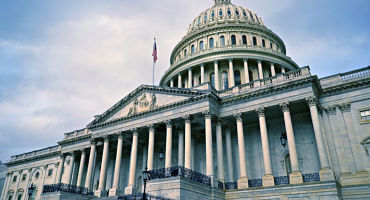
Shrinking the government footprint: Medicaid cuts and America’s economic health
Macro Strategist Juhi Dhawan looks at what changes to the mammoth US Medicaid program could mean for economic growth, employment, inflation, and financial markets.

Bitcoin on the brink: What investors need to know
As bitcoin appears to be entering a new phase of acceptance, we offer a brief asset owner's guide to the cryptocurrency's role, the evolving regulatory environment, potential investment benefits and risks, and portfolio implementation.

Private investments: How much should I own?
Our experts discuss the key steps to determine the size of private-market allocations, focusing on illiquidity tolerance, excess return needs, and manager selection.

The yield buyer
Our fixed income experts examine the impact of tight credit spreads and elevated yields on today’s credit markets and explore the value of active management.

High hopes and low credit spreads
Connor Fitzgerald highlights the implications of tight credit spreads and the importance of flexibility for fixed income managers navigating today's market.

FOMC meeting: Misery loves company
Fixed Income Portfolio Manager Jeremy Forster explores the Fed's decision to hold rates, downgraded economic forecasts, and the implications of balance-sheet policy changes on inflation and market conditions.

Chart in Focus: how sustainable is Europe’s rally?
Is the recent rally in European equities sustainable? In this edition of our Chart in Focus series, we explore the potential path ahead.

The high cost of unfunded duration — and some hope on the horizon
With many corporate DB plans thinking about managing their hedge ratios, members of our LDI Team explain the high cost of synthetic duration, how plans might want to think about this issue when targeting a specific duration profile, and why costs could improve over time.

Shrinking the government footprint: Deregulation and the US economy
Macro Strategist Juhi Dhawan shares her view on the economic effects of the Trump administration’s efforts to slash red tape, including the impact on growth and inflation, as well as some of the potential drawbacks of this approach.

CLO equity returns in a tight spread environment
Our CLO experts discuss CLO equity investing in today's tight spread environment, focusing on arbitrage, optionality, and income potential.

The US equity rotation: Where have all the good vibes gone?
After riding into 2025 on a wave of post-election euphoria, the US stock market has struggled to find its footing so far this year. Global Investment and Multi-Asset Strategist Nanette Abuhoff Jacobson looks at what’s changed in the markets and what it might mean for investors.

Venture capital in 2025: Deployment and valuations
How are valuation and deployment trends shaping today’s opportunities in venture capital? Our VC experts explore the current state of the market and their expectations for 2025.

Early-stage venture in 2025
Jackson Cummings, head of Wellington Access Ventures, explores the potential impacts of Trump 2.0 on early-stage venture, highlighting deregulation, fintech opportunities, AI-driven manufacturing innovations, and more.

Private biotech investing in 2025
Nilesh Kumar, head of biotech private investing, shares his outlook for 2025, weighing headline risk against biotech venture capital's potential tailwinds.

Late-stage growth investing in 2025
How could Trump 2.0 impact late-stage private companies? Matt Witheiler, head of late-stage growth, explores the potential impact of inflation and tariffs on the late-stage market in 2025.

Private climate investing in 2025
Greg Wasserman, head of private climate investing, explores the nuanced impact of the Trump administration on climate venture capital, discussing the Inflation Reduction Act, automation, and climate adaptation opportunities.

No more free lunch: Impact of higher interest rates on private equity
We explain what the direct and indirect rate exposure of buyouts, venture capital, growth equity, secondaries, and fund-of-funds mean for investors.

Power play: Building the case for infrastructure in 2025
The long-term case for listed infrastructure remains compelling. But could near-term catalysts, such as nuclear and natural gas, also drive performance in the short term?

A pivotal election result for Germany and Europe
Macro Strategists Eoin O’Callaghan and Nicolas Wylenzek share their initial observations on what the pivotal Federal election results in Germany could mean for investors.

Chart in Focus: Can quality hedge against inflation?
Can Quality hedge against inflation? In this latest edition of Chart in Focus, we explore the historic outperformance of high-quality stocks and bonds during periods of high inflation, perhaps offering lessons should inflation surprise to the upside in 2025.

Monthly Market Review — January 2025
A monthly update on equity, fixed income, currency, and commodity markets.

US debt dynamics: Is there a path to sustainability?
How worried should investors be about US debt sustainability? Macro Strategist Michael Medeiros discusses the implications of soaring US federal budget deficits and the likely bond market response.

Time for credit selection to shine
Fixed income investors continue to seek answers to an era of volatile rates. Large, static exposures to credit markets no longer cut it. Instead, a nimble and dynamic approach is more likely to create resilient and consistent total return outcomes.

Convertible bonds: Attractive total return potential in a compressed fixed income landscape
Fixed Income Portfolio Manager Michael Barry details his optimism for convertible bonds in 2025, focusing on their attractive yields, equity upside potential, and exposure to growth-oriented sectors like technology and healthcare.

Setting the stage for small caps in 2025
Our small-cap equity experts discuss valuation, market cycles, economic conditions, and sector diversification, profiling the potential of small-cap equities in 2025.

WellSaid: Partnering with climate founders
Wellington head of private climate Greg Wasserman discusses his team's approach to helping private companies progress along their growth journey

Wiring the future: Emerging tech for the transmission-grid build-out
Learn how our climate technology investment team is researching private market opportunities in high-capacity conductors and other energy grid-tech innovations.

Flipping the script: Our updated market outlook and the derisking/rerisking decision
Members of our LDI Team share an unusual outlook for equities and bonds and explain what it could mean for US corporate pension plans contemplating either derisking or rerisking moves from here.

Deeply seeking the impact of AI spending on bond yields
Brij Khurana explores the surprising way in which AI spending may impact Treasury yields and complicate the Fed's rate-policy decisions.

Private credit roundtable: Outlook in 2025
Our private credit experts explore the potential effects of Trump 2.0 policies — like tariffs and deregulation — on the asset class in 2025. In addition, they dive into the impact of higher-for-longer interest rates, the broadening of private credit markets, and much more.

Sitting in the slack tide of US fiscal stimulus
Portfolio Manager Connor Fitzgerald profiles the risks of the Trump administration's policies around spending cut, tariffs, and immigration, and analyzes potential effects on US growth.

Implementing decarbonisation guidelines: lessons learned in collaboration with clients
For asset owners with net-zero ambitions, balancing decarbonisation goals with investment objectives can be a challenge. Climate Transition Risk Analyst Julie Delongchamp outlines a practical five-step approach to implementing tailored guidelines.

The US immigration crackdown: Weighing the economic implications
As the details of new US immigration policies come into focus, Macro Strategist Juhi Dhawan considers the risks they may pose for the labor market and the broader economy.

The role of public/private collaboration
Josh Sommerfeld, health care sector lead for late-stage private investments, highlights why he believes working with public-market colleagues like Dave Khtikian helps him be better at the four key parts of his job: sourcing, diligence, pricing, and exiting.

Geopolitics in 2025: Risks, opportunities, and deepening uncertainties
Geopolitical Strategist Thomas Mucha outlines his structural, policy, and geopolitical outlook for the year.

Turning tides for US Treasuries
Uncover the case for US Treasuries in fixed income portfolios against the current market backdrop.

Venture capital roundtable: 2025 outlook
In this roundtable, we explore the short- and longer-term implications of Trump 2.0, share our views on the IPO and M&A environments, and dive into the potential impact of tariffs, labor scarcity, and a higher-for-longer interest-rate environment.

Fed in holding pattern
Fixed Income Portfolio Manager Jeremy Forster unpacks the US Federal Reserve's decision to pause its interest-rate-cutting cycle.

Emerging markets under Trump 2.0: expect the unexpected
Portfolio Manager Dáire Dunne and Investment Director Irmak Surenkok discuss what Trump 2.0 entails for emerging markets investors and what useful lessons they can learn from his first term.

Private market perspectives
Hear from private market experts across our early-stage venture, climate growth, late-stage biomedical, late-stage growth, private credit, and ESG teams.

High-yield bond investing in 2025: the year of the coupon
High-yield bond Portfolio Managers Konstantin Leidman and Mike Barry, and Investment Director Jennifer Martin discuss why, in 2025, high-yield bond investing is all about the coupon.

Charts in Focus: Growth of capital securities markets
Fixed Income Portfolio Manager Noah Atlas makes the case for capital securities and details the advantages they could potentially provide for investors.

Europe amid regime change: where next for European equities?
Is pessimism on Europe overdone? Macro Strategist Nicolas Wylenzek discusses why he believes Europe is in the middle of a regime change with significant opportunities for active equity investors.

What an “America first” foreign policy may mean for markets
Fixed Income Portfolio Manager Brij Khurana explores the potential market impacts of President Trump's "America first" foreign policy. From regional hegemony to global economic dominance to tariffs applied for strategic geopolitical gain, discover how these shifts could affect investors.

Quarterly Market Review
A quarterly update on equity, fixed income, currency, and commodity markets.

Picture this: Economic forecast in 6 charts
We offer our 2025 economic and market forecasts across the capital markets in 6 charts.

Monthly Market Review — December 2024
A monthly update on equity, fixed income, currency, and commodity markets.

Monthly Market Review — November 2024
A monthly update on equity, fixed income, currency, and commodity markets.

Four achievable New Year’s resolutions for investors
Are New Year’s Resolutions for investors purely aspirational or a helpful tool? Investment Strategy Analyst Alex King believes the latter and proposes four achievable resolutions.

Balancing bumps in the road and big-picture thinking in 2025
How can investors position portfolios for bumps in the road without losing sight of longer-term opportunities?

Top 5 fixed income ideas for 2025
Fixed Income Strategist Amar Reganti and Investment Communications Manager Adam Norman outline which five areas of fixed income may be best positioned in 2025.

Climate adaptation may cost trillions. Is your portfolio ready?
With climate adaptation and resilience spending projected to exceed mitigation spending sixfold by 2050, we believe investors should consider allocations to adaptation-aligned opportunities.

The allocator’s checklist for 2025 and beyond
Head of Multi-Asset Strategy Adam Berger offers near- and longer-term ideas for allocators, including thoughts on alternatives, potential market surprises, and risk management.

Executive Summary 2025: Finding opportunity amid uncertainty
In this article, we summarize some of the key findings from our 2025 outlooks, from divergence-driven opportunities to the impacts of AI and beyond.

LDI in 2025: Ten questions corporate plan sponsors are asking
Members of our LDI Team address a range of topics that US corporate plans will be thinking about this year, from pension funding and accounting issues to portfolio diversification opportunities.

Three performance drivers could help hedge funds rev up returns
Alex King and Adam Berger, members of our Investment Strategy & Solutions Group, explain why we're at a turning point for economic and market conditions that could benefit hedge funds and make them a potentially valuable addition to a multi-asset portfolio.

Alternative Investment Outlook
This collection provides timely ideas across the spectrum of alternative investments -- including hedge funds, private equity, and private credit.

Fed delivers rate cut, but hawkish 2025 guidance sends yields up
Fixed Income Analyst Caroline Casavant examines the outcome of the December 18 Federal Open Market Committee meeting and the implications for rates, inflation, and real growth.

Accelerating the future of active management
CEO Jean Hynes explains how Wellington is building for the future of active management by investing in our capabilities and aligning our organization and talent with clients’ shifting needs.

Governance best practices in public markets
For private companies approaching the public markets, we highlight the corporate governance best practices that can help pave strong relationships with public market investors.

Concentrated markets: Implications for active management, manager research, and multi-manager capital allocation
Members of our Fundamental Factor Team share research insights on the portfolio impact of benchmark concentration and highlight tools that may help, including extension strategies, passive-share analysis, and index-completion approaches.

Private biotech: Immunology and inflammation’s third wave
Our experts discuss how I&I is building on industry progress to offer new treatment solutions and interesting opportunities for private biotech investors.

Time to get active? 5 equity investment ideas for 2025
As we head into 2025, growth seems poised to accelerate, especially in the US. Equity Strategist Andrew Heiskell and Macro Strategist Nicolas Wylenzek see five themes that may create opportunity across global equity markets.

Going their separate ways: Capitalizing on bond divergence
Our fixed income experts discuss how to position portfolios for a world of uncertainty and divergence, exploring key themes and evolving bond opportunities for 2025.

Multi-Asset Investment Outlook
To help think through the asset allocation outlook and implications for this year, we offer views from iStrat, our investment strategy and solutions group.

Securitized credit: Opportunity amid tight corporate spreads?
Portfolio Managers Rob Burn and Cory Perry discuss why they believe securitized credit has an attractive role to play in today’s tight-spread environment and highlight potential areas of opportunity in 2025.

Trump 2.0: Time to curb your enthusiasm?
How does an allocator navigate markets when so much about the policy landscape is unknown? Our Investment Strategy & Solutions Group offers their views on the new political realities in the US and their global implications, including for equities, bonds, and commodities.

A guide to investing in the age of anxiety
There's a long list of issues worrying asset owners, from geopolitical risk to high valuations. To help, Head of Multi-Asset Strategy Adam Berger offers coping tips for an uncomfortable investment backdrop and a world where investing rules of thumb may be broken.

The credit cycle has been extended — but what’s next?
Credit experts Derek Hynes, Joe Ramos and Will Prentis discuss why they believe the current credit cycle still has legs and explore likely implications for credit portfolios in 2025.

Private Investment Outlook
In our private market outlook collection, we explore the themes driving the rapid evolution of private credit and private equity markets.

Venture capital outlook for 2025: 5 key trends
Our venture capital experts are encouraged by the healthier environment for venture capital in 2025. In this year's outlook, they explore key themes for the year ahead, including: higher deployment, AI, rebounding IPOs, and impacts of the 2024 election.

Private credit outlook for 2025: 5 key trends
Our private credit experts, Emily Bannister and Sonali Wilson, highlight five critical trends for 2025: the convergence of public and private markets, AI's impact on private credit, the evolving role of banks in lending markets, the impact of higher interest rates, and the importance of financial covenants.

What's current in credit: November 2024
Connor Fitzgerald explores the impact of President Trump’s US election victory on credit markets. Where are the opportunities and risks for credit investors now?

High-yield credit investing: it’s a marathon, not a sprint
Fixed Income Portfolio Manager Konstantin Leidman explains his focus on the high-quality companies likely to outperform over the long term and why he is wary of the hype surrounding potentially bubble-inducing developments like generative AI.

Is your portfolio keeping pace with the changed outlook?
It's been an uncertain few years for investors, but looking ahead, we believe investors can expect a resilient economy, a solid outlook for growth and a positive environment for risk assets. What does a changed outlook mean for investors?

Chart in Focus: Is the “Trump trade” real?
Is this "Trump trade" real?In this latest edition of Chart in Focus, we compare market's reactions to Trump's re-election and his 2016 election, and share our observations.

The year of uncertainty: 5 macro themes to watch in 2025
Macro Strategists John Butler and Eoin O’Callaghan outline five macro themes for investors to watch in 2025 in a year they see defined by exceptional uncertainty and an extraordinary macroeconomic backdrop.

Monthly Market Review — October 2024
A monthly update on equity, fixed income, currency, and commodity markets.

Listening to voters’ economic concerns should mean less fiscal spending
Fixed Income Portfolio Manager Brij Khurana explains the likely economic and market impacts of Trump administration policies, including potential winners and losers from drastic fiscal spending cuts.

Navigating uncertain policy shifts
Macro Strategist Juhi Dhawan explains why investors should prepare for heightened volatility in 2025, due to significant policy changes under President-elect Trump that will impact inflation, trade, and economic growth.

Markets in 2025: asleep at the wheel or in the driving seat?
Watch the conversation with Head of Macro Strategy John Butler as he discusses recent macro events and potential 2025 market outcomes for investors.

“Goldilocks” and the three drivers of hedge fund outperformance
Members of our Investment Strategy & Solutions Group explain why shifting economic conditions may bode well for hedge funds broadly but also see reasons that manager selection may be more important than ever.

Time for bond investors to take the wheel?
Volatility makes bond investing less straightforward, but it can also create opportunities, provided investors are in a position to "take the wheel" in order to capitalise on them.

Fed stays its course while acknowledging brewing winds of change
Our expert examines the underlying data which drove the Fed to stay its rate-cutting course.

Chart in Focus: Can this equity bull market last?
Can this current equity bull market last? In this latest edition of Chart in Focus, we focus on the indicators of whether it may come to an end or keep running.

Setting ROAs for 2025: A guide for US corporate and public plans
How are pension plans adjusting their ROA assumptions? And how do those assumptions line up with our long-term capital market assumptions? Find out in this annual update.

What do declining European earnings mean for ECB policy?
European companies have been unexpectedly resilient over the last couple of years. However, the outlook for European earnings could be more challenging than headline numbers suggest. What could this mean for investors?

Trump 2.0: US election market impacts
In the wake of the US election, macro strategists Juhi Dhawan and Michael Medeiros join host Thomas Mucha to discuss the market, policy, and geopolitical implications of Trump 2.0.

Are bond investors ready for a US industrial revolution?
Portfolio Manager Connor Fitzgerald discusses why bond investors should ready themselves for a potential US industrial revolution and shares his perspective on how to reposition portfolios for such a scenario.

It’s different this time: Trump faces challenging geopolitical dynamics
Our expert explores how Trump may approach the heightened geopolitical challenges his second administration faces.

What do the US election results mean for investors?
The US election results could have significant implications for the global economy and capital markets. Our panel of experts provides a thorough analysis of what happened and explores potential market impacts.

Trump win likely to accelerate macro trends already in motion
The US election results could have significant implications for the global economy and markets. To help you understand these changes, US Macro Strategist Mike Medeiros provides a thorough analysis and discusses the potential market impacts.

AI is hungry: What’s on the menu?
Our technology venture capital experts explore AI’s potential for disruption, highlight potential winners and losers, and dive deep into the innovation’s impact on the software industry.

Measuring impact in venture capital
We highlight why venture capital matters to impact investors and how to authentically measure and manage impact in this asset class.

Pre-election ideas for investors: Lean into what you know (not what you don’t)
Our expert offers investable ideas based on known macro and market conditions, rather than speculation.

The power of local perspective: the long and short of European equity investing
Dirk Enderlein and Boris Kergall explain why, in their view, the structural changes impacting European equity markets offer active long/short investors a rich source of potential return and diversification.

Impact measurement and management: addressing key challenges
Our IMM practice leader describes common impact investing challenges and suggests ways to overcome them.

Why more corporate plans should pass on pension risk transfers
LDI Team Chair Amy Trainor explains why she believes a pension risk transfer may, in many cases, not be the best choice for fully funded plans from a cost/benefit standpoint.

Quality growth — a less volatile sweet spot?
Growth stocks can be volatile, especially when companies fail to meet expectations. However, high-quality growth companies can help mitigate downside risk while still offering potential for long-term outperformance. How can investors find the sweet spot?

Unlocking the full value potential of stewardship
Yolanda Courtines and Alex Davis examine how corporate stewardship can be a source of value and delve into what investors can do practically to maximise its full potential.

Decoding impact expectations: best practices for impact investors and companies
We share three recommendations each for impact investors and companies to help them better understand and manage each other's expectations.

Quarterly Market Review
A quarterly update on equity, fixed income, currency, and commodity markets.

Monthly Market Review — September 2024
A monthly update on equity, fixed income, currency, and commodity markets.

Strong fundamentals, attractive valuations: Why the time may be right for active biotech investing
From solid fundamentals to supportive macro conditions, learn why our biotech experts believe the industry may be ready to run.

Navigating AI resource demands: Strategies for sustainable data center operations
AI's growing computational demands are raising critical questions about energy efficiency and water-resource management. We delve into strategies for enhancing sustainable data center operations, highlighting the importance of proactive resource stewardship.

Impact measurement and management practices
What constitutes an impact investment? How is impact measured? And, what are the benefits of impact investing? Our Impact Management and Measurement Practice Leader Oyin Oduya discusses our approach.

What is “the economic cycle,” anyway?
See why the relationship between asset prices and the economic cycle is more complex than you might think, why a US recession is unlikely, and what a more dovish Fed could mean for the US and global markets.

Japan’s factory automation sector: Poised for a significant upturn?
Global Industry Analyst Takuma Kamimura explains why he believes we’re on the verge of a multiyear cyclical upturn in the factory automation sector and why he sees a compelling outlook for select Japanese companies in particular.

US election special: which investment themes win at the polls?
The upcoming US election could be one of the most momentous in recent history. How could the result affect different investment themes? Our thematic team investigate the potential implications for investors.

Unearthing the unseen in geopolitics
Unearthing the unseen in geopolitics. Watch Geopolitical Strategist Thomas Mucha delve into the investment impact of structural geopolitical shifts and share his latest take on the upcoming US election.

Can central bank independence survive?
Can central bank independence survive? Macro Strategist John Butler discusses the challenges faced by central banks in an increasingly fraught political environment and how investors should adjust.

Securitized credit: Normalizing, decelerating, or falling off a cliff?
Our experts offer their views on the current conditions and outlook for the securitized credit market.

Sahm rules are meant to be broken
Fed easing is finally here and fundamentals remain favorable. But what about that election? Members of our Investment Strategy & Solutions Group offer their outlook, including their latest views on equities, bonds, and commodities.

What’s next after Iran’s missile attack on Israel?
Geopolitical Strategist Thomas Mucha shares his analysis of the latest escalation in the Middle East conflict, including his thoughts on a wider regional war and the market implications.

Assessing the impact of climate resilience
Oyin Oduya and Louisa Boltz discuss the case for impact solutions focused on climate adaptation and share high-level guidelines to help overcome the associated measurement challenge.

Designing an executive compensation program: Five best practices for private companies
Our Value Creation Team highlights best practices for creating effective executive compensation programs for private companies approaching IPO.

Chart in Focus: What does the rate cut mean for equities and bonds?
Are rate cuts positive? On the heels of the much-anticipated initial Fed cut, in this article we look to historic precedent for where the markets could go in the coming months.

An active investor’s guide to growth equities
Our experts offer their view on the current economic environment, explore best practices for investing in high-quality growth equities, and highlight where they see opportunity now.

Chart in Focus: The need to differentiate market growth from macro growth
Macro growth and earnings growth have been misaligned for the last 15 years, particularly in the US and China, but in opposite directions. For equity investors, what would be the key to identify real growth?

Rate relief: Fed cuts half point, but says “economy is strong”
Our expert explains the Fed's bold rate cut and some key takeaways for investors.

Monthly Market Review — August 2024
A monthly update on equity, fixed income, currency, and commodity markets.

The real issue on rate cuts? Keep your eyes on the dot (plot)
Keep your eyes on the Fed's 2025 dot plot. The real story is where policy rates are headed, not just the next rate cut.

Private equity deep dive
We explore four key private equity questions to help investors better understand how these strategies compare and complement each other in a portfolio. In particular, we highlight the distinct opportunity sets, risk-return characteristics, and portfolio roles of venture capital and buyout strategies.

The US elections through the eyes of a European investor
Supriya Menon, Head of Multi-Asset Strategy – EMEA, explores what potentially material implications upcoming US elections could have for European investors and identifies key areas to monitor closely.

When public and private markets converge
Wellington President Steve Klar discusses the evolution of the public and private markets and what it means for asset owners as they seek to tap into the growth potential of private companies and be more nimble in their investment approach.

Extra credit for corporate plans: Advanced topics in LDI implementation
To help corporate DB plans refine their liability-hedging strategies, members of our LDI Team take a deep dive on 3 key liability risks and offer ideas to help improve the design of hedging portfolios.

Picture this: Our forecast in 7 charts
What should investors expect for the remainder of 2024? View a visual summary of our Investment Outlook in seven compelling charts.

What the yen carry trade unwind could mean for markets and the Fed
Brij Khurana explains why market participants are likely underestimating how foreign ownership of US assets could constrain the pace and magnitude of the Fed’s cutting cycle.

The investment implications of Europe’s ageing workforce
What are the investment implications of Europe’s ageing workforce? Macro Strategist Nicolas Wylenzek explores the drivers of this accelerating demographic shift, Europe’s likely response and the opportunities it creates for investors.

Four investment perspectives amid a pivotal US election
How can investors reposition portfolios for a pivotal but highly unpredictable US elections? Nick Samouilhan explores potential avenues in conversation with three leading portfolio managers.

Destination diversification – is your bond portfolio ready to take flight?
In a new economic era, bonds once again provide the potential for downside protection, but diversification within fixed income is increasingly important. Impact bonds can offer a differentiated and diversified way to drive both positive change and returns.

Opportunities in high yield: ready, steady, pounce?
Fixed income investors face a fundamentally different environment, but opportunities to target growth in high yield are emerging, provided investors can stay on the front foot.

Time to capitalise on the evolving role of bonds?
We outline why we think the new economic era is elevating the role of bonds as a source of attractive and stable income, downside protection and portfolio diversification.

Capital securities: Why these hybrid investments may offer a compelling risk/reward profile
Members of our Fixed Income team explain why capital securities, a hybrid asset class that shares characteristics of bonds and stocks, may offer attractive diversification, income, and return potential.

Commodities and the energy transition: Symbiosis for the future
The global energy transition is driving demand for commodities. Our experts explain which ones will be needed most.

Japan’s tech sector: Time for a reboot?
Japan's semiconductor industry has revived global interest in Japan's tech ecosystem. But we believe the dynamism of Japan's tech sector today doesn't start and end with electronics and semiconductors.

CLO equity insights: Private credit
Explore how the convergence of public and private markets is impacting CLO equity, including the unexpected benefit it has driven in recent years.

Private placements: A primer for corporate DB plans preparing to derisk
With many corporate DB plans exploring derisking opportunities, Portfolio Manager Elisabeth Perenick and Multi-Asset Strategist Amy Trainor discuss the potential role that private investment-grade credit, or private placements, could play and consider common questions about liquidity and allocation sizing.

Biotech IPOs in 2025: Quantity, quality, and best practices
We explore today's biotech IPO market, highlighting recent market trends, key characteristics for successful biotech IPOs, and best practices to sustain momentum as a public biotechnology company.

Monthly Market Review — July 2024
A monthly update on equity, fixed income, currency, and commodity markets.

Asia’s evolving venture capital market
What's next for Asian venture capital? After a decade of growth, we explore key questions and best practices for VC investors and private companies in the region.

The power of local perspective: where next for European banks?
Global Industry Analyst Thibault Nardin explores how monetary policy divergence, technological disruption and sector consolidation are reshaping European banks, while creating potentially compelling opportunities for active investors.

Harris vs Trump: The foreign policy and investment implications
Our expert examines expected Harris and Trump foreign policies and their potential impact on the investment landscape.

Walking a mile in Fed Chair Powell’s shoes
A slow roll on rate cuts by the Fed could frustrate markets and lead to more volatility ahead of the September FOMC meeting. See our take on what to expect for the next few weeks.

Massive market sell-off: Justified or an overreaction?
What's behind the global market meltdown, and what should investors consider doing? Global Investment and Multi-Asset Strategist Nanette Abuhoff Jacobson shares her views.

Office to multifamily conversions: Implications for CMBS investors
Our experts explore the emerging trend in some US cities of converting office space into multi-family units and its implications for bond investors.

Global macro strategies: Multi-dimensional tools for an era of economic change
With the global economic environment creating potential opportunities for macro investors, we consider the heterogeneity of the global macro strategy universe, the case for combining different styles, and the choice between a single- and a multi-portfolio manager approach.

Does the US election even matter? Thoughts on politics, Fed policy, and portfolios
What's next for interest rates and what impact will the US election have? Head of Multi-Asset Strategy Adam Berger and Macro Strategist Mike Medeiros share their outlook and discuss the asset allocation implications.

AI governance for private companies
Explore the critical need for AI governance for private companies, addressing evolving risks, regulations, and best practices for responsible gen AI usage.

Chart in Focus: Four key areas of opportunities in bonds amid Fed uncertainty
We discuss four key areas of opportunities in fixed income amid Fed uncertainty in the second half of the year.

The AI effect: Time to rethink your technology exposure?
Will AI fulfill the market's high expectations? Will it continue to drive market concentration? Head of Multi-Asset Strategy Adam Berger and Global Industry Analyst Brian Barbetta, co-head of our Technology team, discuss the outlook and the asset allocation implications.

European elections: all change for equity investors?
Macro Strategist Nicolas Wylenzek discusses how the elections for the European Parliament could herald significant change, with major implications for European equity investors.

Financial Market Review
A quarterly update on equity, fixed income, currency, and commodity markets.

Monthly Market Snapshot — June 2024
A monthly update on equity, fixed income, currency, and commodity markets.

Chart in Focus: Broadening earnings growth signals healthy US equity market
Over the past year, the markets have seen the companies best poised to harness and benefit from new innovations within artificial intelligence rewarded accordingly. Can this signal more upside for the entire US equity market?

The evolution of derisking: Assessing new and time-tested liability-hedging ideas
As defined benefit plans contemplate the best path to their eventual “end state,” members of our LDI team update their liability-hedging research with a blend of traditional benchmark ideas and new opportunities to capitalize on changing market conditions and a broader investment universe.

Breaking concentration: big picture thinking with small-cap equities
How to overcome the risks associated with today's concentrated market? Investment Director John Mullins explores why small-cap equities could be part of the answer.

Surprise French election result: what does it mean for investors?
Macro Strategist Nick Wylenzek and Investment Director Thomas Kramer discuss the surprise French election and its implications for European equities.

Ok, Boomer: How US generational wealth distribution could upend the economy and markets
Fixed Income Portfolio Manager Brij Khurana discusses the implications of US Baby Boomers' wealth concentration in the event of a market decline.

Disappearing unicorns: The importance of capital efficiency in a higher-for-longer rate environment
Members of our late-state growth equity team share their views on the impact of interest rates on venture capital activity — including the ability of companies to reach “unicorns” status.

All-time highs and CPIs: What comes next?
Global fundamentals have kept markets content so far this year, but will politics sour the mood? Members of our Investment Strategy & Solutions Group offer their views on the second half of 2024, including on equities, bonds, and commodities.

Loans from Federal Home Loan Banks: An opportunity for US insurers to enhance investment yield and total return
Learn why we believe FHLB loans provide compelling potential for insurers to add alpha or increase yield by borrowing at low rates and benefitting from possible favorable treatment by ratings agencies. In addition, explore examples of customized investment solutions that have the potential to capitalize on these advantages.

Beyond the noise: Four key drivers of private credit opportunities
With recent negative headlines around private credit, we think it's crucial to move beyond the noise and explore the asset class's enduring trends like disintermediation, the convergence of public and private markets, and much more.

Divergence isn’t just about central bank policy
Divergence has implications for investors —and central bank divergence is only one of five ways to think about it.

Beyond US large cap: Where now for equity investors?
How should investors navigate a narrow market? Looking ahead to the rest of the year, Macro Strategist Nicolas Wylenzek examines the structural backdrop and Equity Strategist Andrew Heiskell shares his view on equity opportunities to watch.

Capitalizing on rate shifts: Parsing opportunities in the second half
Fixed Income Portfolio Manager Campe Goodman and Fixed Income Strategist Amar Reganti discuss how to capitalize on potential rate shifts in the second half of the year

Cybersecurity for private companies
We highlight today's rising cybersecurity risks, explore how they impact private companies, discuss key regulatory considerations, and share best practices for companies facing these threats.

8 emerging venture capital trends
We share eight of the themes driving venture capital markets in 2024, including capital efficiency, DPI, the IPO market recovery, and much more.

Investing in “3D”: Forces shaping alternatives opportunities in 2024
Multi-Asset Strategists Adam Berger and Nick Samouilhan offer six ideas from the hedge fund and liquid alternatives investment space, from global macro to multi-strategy approaches.

Reframing fixed income portfolios: why bond maths makes the difference
It is easy to understand why fixed income investors tend to focus on yields. But investors who focus too much on yield may run the risk of overpaying for income and underestimating the impact of price volatility.

When the Fed sneezes, the ECB… cuts rates regardless?
Since the late 1990s, when the US cycle turned, the rest of the world generally followed, with a lag. However, the new economic era is likely to result in greater cyclical divergence between countries and the need for different central bank responses. How should investors think about the age of economic divergence?

Factors to consider when allocating to US small-cap stocks
From avoiding "junk" to holding on to "graduates," members of our Fundamental Factor Team share their research insights on the pursuit of alpha in the small-cap space.

Currency interventions — here to stay?
Marco Giordano and Danielle Wei discuss the growing risk of large-scale currency interventions and what investors can do to prepare for the associated risks and opportunities.

Commodities: Entering a scarcity-pricing regime
Is copper the oil of the energy transition? Here, we provide a view of this important commodity’s future, captured in four charts.

June FOMC meeting: May disinflation is welcome, but is not enough for a rate cut
Fixed Income Analyst Caroline Casavant discusses what June's FOMC meeting tells us about the US Federal Reserve’s latest thinking on interest-rate cuts.

Beyond the hype: finding AI’s long-term winners
Our expert argues that a long-term mindset based on deep research can help to uncover evolving AI investment opportunities amid the hype.

Has the European credit cycle been extended?
2024 has kept fixed income investors busy. Yet, despite lingering inflation and rate volatility, European credit markets have remained strong. Are we looking at an extended credit cycle? And if so, what does this mean for investors?

Battle for the supply side of the economy: US election implications
Starkly different policy agendas from Biden and Trump are examined in terms of how they may affect the supply side of the US economy.

The revenge of the monetarists
Fixed Income Portfolio Manager Brij Khurana makes the case for a monetarist explanation for moderating inflation.

Governments have been slow to reduce their fiscal deficits — it could cost them
Our expert explores the investment implications of continued excessive deficit spending by G7 countries.

Thriving or surviving? The state of the US consumer and the economic implications
Macro Strategist Juhi Dhawan examines the condition of the all-important consumer, including the outlook for spending, the effects of inflation and prevailing interest rates, and the consequences for the overall economy.

Behind the research with Saul Rubin
Veteran investor Saul Rubin shares a recent example of collaborative active management that reflects Wellington's deep understanding of the global automotive industry and commitment to increasing client value.

Built to last? Identifying durable health care start-ups
Two members of our late-stage growth team share insights and results from their recent analysis of enterprise-value trajectories for private, non-biotech health care companies.

Monthly Market Snapshot — April 2024
A monthly update on equity, fixed income, currency, and commodity markets.

As India goes to the polls, is the case for Indian equities still compelling?
While current Prime Minister Narendra Modi is expected to secure a third term, a full-scale win is not a foregone conclusion. Against this backdrop and continued investor enthusiasm for Indian equities, Equity Portfolio Manager Niraj Bhagwat and Investment Director Philip Brooks assess the macro case for India. Are higher valuations justified?

Value stocks: Rules of thumb are meant to be broken
What will it take for value stocks to bounce back from a long period of underperformance? Members of our iStrat Team say that, conventional wisdom aside, it's not all about the economic cycle and offer their outlook for the next three to five years.

Looking beyond yield: Rethinking the approach of fixed income investing
Investors face a new regime, challenging traditional assumptions about returns and volatility. With central bank interventions impacting credit markets, it’s time to rethink income allocations. Rather than fixating solely on yield, consider a dynamic approach, presented by Connor Fitzgerald.

Structuring core fixed income: A constructive view on market and macro conditions
Head of Multi-Asset Strategy Adam Berger and Fixed Income Portfolio Manager Connor Fitzgerald discuss the interest-rate environment and the fundamental picture in investment-grade credit and high yield.

With the Fed on hold, is the case for bonds kaput?
Amid worries about sticky inflation, the market has scaled back its expectations for interest rate cuts this year. But even if rate cuts are on hold a while longer, members of our Multi-Asset Team still think investors should consider a move from cash to bonds.

What could change the trajectory of value stocks?
Head of Multi-Asset Strategy Adam Berger and Equity Portfolio Manager Nataliya Kofman discuss “resilient” value stocks, disruptive themes, and attractive sector- and country-level opportunities.

Small-cap stocks: Watching for mean reversion, technology diffusion, and the next inflection point
Our experts discuss factors that could help small-cap stocks rebound and the search for winners in this inefficient segment of the market.

Time to derisk? Funded status up, but potential volatility ahead
LDI Team Chair Amy Trainor explains why US corporate DB plans may have a rare and limited opportunity to derisk and offers suggested action steps.

Innovation and M&A driving biotech recovery
We are optimistic that the biotech market will continue to recover, supported by innovation, an improving macroeconomic environment, continued M&A activity, and improved fundamentals for the sector.

Exploring active opportunities amid continued regime change
Head of Multi-Asset Strategy, APAC, Nick Samouilhan outlines why today's environment of dispersion, divergence and disruption offers potentially compelling opportunities for active investors.

Powell back to waiting on inflation data
Our expert's key takeaways from the May FOMC meeting.

Impact investing in emerging markets: Growing opportunities, shifting challenges
Members of our impact bond team discuss their evolving emerging markets opportunity set and the importance of a bottom-up approach to value creation.

Can hedge funds play the role?
How should investors select the most suitable types of hedge funds for specific roles? Members of our Investment Strategy & Solutions Group offer a simple and intuitive framework that can help.

Why an impact lens is an important tool in the fixed income investor's arsenal
Campe Goodman, Will Prentis and Oyin Oduya discuss how an impact lens can be an important tool in the fixed income investor's arsenal.

The Fed’s lessons learned from its COVID response
Fixed Income Portfolio Manager Brij Khurana breaks down the central bank's policy decisions during the pandemic and explains how they continue to affect financial markets.

4 equity themes: Budding opportunities in small caps and more
Our expert highlights 4 areas where he sees opportunity in global equity markets.

Picking the right building blocks for a climate-aware portfolio
For asset owners integrating climate change into their multi-asset portfolios, members of our Investment Strategy & Solutions Group offer five important insights.

Japan equity: Reason to believe
Our expert argues that corporate governance reform and the Japanese economy's escape from persistent deflation have laid the groundwork for a sustainable equity rally.

Financial Market Review
A quarterly update on equity, fixed income, currency, and commodity markets.

Monthly Market Snapshot — March 2024
A monthly update on equity, fixed income, currency, and commodity markets.

Biden 2.0: National security and investment themes
The geopolitical and investment implications of a potential second Biden term.

A turning point for US small caps
Myth busting US small caps: why now could be a compelling entry point for the asset class.

The immigration surge: Political challenge, economic blessing?
Macro Strategist Juhi Dhawan considers the impact of rising immigration, a top issue in this year's US elections, on growth, interest rates, and the labor market.

The role of multi-asset credit in DC plans
We believe that multi-asset credit can augment a DC plan's core or core plus allocation by potentially providing diversification, real-time allocations to sector opportunities, and a stable income stream.

Four questions for investors after Japan’s historic hike
With the Bank of Japan having finally moved out of negative rates, Macro Strategist John Butler identifies the four key questions he believes investors should focus on.

Do fundamentals support a risk-on tilt?
Surprisingly strong economic growth, declining inflation, easy financial conditions — can it get any better for markets? Members of our Investment Strategy & Solutions Group offer their outlook, including their latest views on equities, bonds, and commodities.

Hyper-personalization and the AI-driven commerce revolution
A member of our early-stage venture team explores the many ways in which artificial intelligence is likely to transform the consumer experience.

A blueprint for building climate-aware multi-asset portfolios
Members of our Investment Strategy & Solutions Group take a deep dive on the issues asset owners should consider when choosing climate-aware portfolio building blocks, from the evolving opportunity set to the active/passive decision.

Using defensive equities in a return-seeking portfolio: A factor framework for corporate plans
Members of our LDI and Fundamental Factor teams share their views on defensive equity investments, including their role in a plan's portfolio and the current environment for defensive factors.

Monthly Market Snapshot — February 2024
A monthly update on equity, fixed income, currency, and commodity markets.

Monthly Market Snapshot — May 2024
A monthly update on equity, fixed income, currency, and commodity markets.

Key factors to monitor in European equities
Macro Strategist Nicolas Wylenzek assesses the longer-term prospects of European equity markets through the prism of five key factors.

Is there opportunity for high yield in today’s new economic era?
Is there opportunity for high yield in today’s new economic era? Portfolio Manager Konstantin Leidman explores.

No bulls in the China shop?
John Mullins, Irmak Surenkok and Steven Ye assess the investment debate surrounding China's prolonged underperformance and outline three investment ideas for active investors to consider.

The Trump/Biden rematch: Market implications of unprecedented policy divergence
Macro Strategist Juhi Dhawan discusses six key areas of policy debate in this year's US election that she expects will matter most to markets, from the tax and spending plans to trade and geopolitics.

Quality value: getting (more than) what you pay for?
Quality and resilience often go hand in hand, but resilience measures future quality. How can resilient companies offer value to long-term investors? And how can investors identify them?

Is the US economy really that different since COVID?
US economists have been touting the resilience of the post-COVID economic rebound. Brij Khurana dissects several key economic indicators to see what's really changed since 2019.

How to nurture a growth mindset in a higher-yielding landscape
In a higher-yield world, can fixed income deliver meaningful growth? John Mullins, Supriya Menon and Alex King explore how high-yield bonds may offer a powerful opportunity for growth - as well as a cushion against uncertainty.

Income: the hard worker in your portfolio deserves more credit
Income from cash is good but income from bonds is better. In a less certain macro environment, Alex King, Supriya Menon and John Mullins think the case for income only gets stronger. How can investors make the most of opportunities?

Adopt a new vantage point for diversifying your portfolio
Supriya Menon, Alex King and John Mullins explore why a diversified mixed of fixed income exposure is a key component of a nuanced approach to diversification in today's cyclical macro regime.

How to reposition for a new economic era?
In this short video, Macro Strategist John Butler outlines the key features of the new economic era we are now entering.

Back to the future: a new economic era
Macro Strategist John Butler explores why he believes the old macroeconomic model is broken and how best to navigate a new era of investing.

5 reasons to be active in fixed income
Actively managed fixed income portfolios have several distinct advantages over passive approaches.

Why high-yield investors should keep a close eye on the default cycle
A peak in defaults may not be far off. What does this mean for investors considering a move to high yield?

Facing the inflation dilemma head on
Inflation has already fallen much quicker than most expected. However, there are convincing reasons why inflation might be higher and more volatile going forward. What are the implications for asset allocation?

Managing currency exposure in multi-asset portfolios: how to weigh the trade-offs and impact
Nick Samouilhan, Head of Multi-Asset Strategy – APAC, evaluates the trade-offs of different currency hedging approaches and offers a novel framework for gauging their potential portfolio impact.

Monthly Market Snapshot — January 2024
A monthly update on equity, fixed income, currency, and commodity markets.
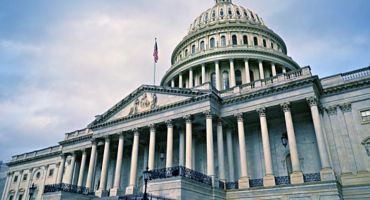
Too much focus on Fed, not enough on fiscal
Current US fiscal and monetary policy stances argue for risk taking in fixed income.

Trends and transformation distilled: Our 2024 outlook in brief
Our experts explore investment opportunities and risks for the year ahead.

Venture capital outlook: Signals point to a brighter 2024
Our private investing team sees positive signals indicating that the recent downturn in venture capital may have hit bottom. Just as privates trailed the public market correction in 2022, we believe they will follow its recovery.

Top of Mind: The allocator’s checklist for 2024 and beyond
Head of Multi-Asset Strategy Adam Berger offers near- and longer-term ideas for allocators, including thoughts on areas where capital is scarce, alternatives may be attractive, and risks may bear watching.

Monthly Market Snapshot – December 2023
A monthly update on equity, fixed income, currency, and commodity markets.

Financial Market Review
A quarterly update on equity, fixed income, currency, and commodity markets.

Annual message from our CEO: At a crossroads
CEO Jean Hynes offers perspectives on the current macro and market environment, including the need to challenge long-held assumptions, prepare for persistent disruption, and consider the resulting investment opportunities and risks.

Navigating a volatile reality: three ideas for 2024 and beyond
2023 saw investors grapple with a new, more volatile reality. How should portfolios be positioned for opportunities and challenges in 2024?

Multi-Asset Market Outlook
To help think through the asset allocation outlook and implications for 2023, we offer views from iStrat, our investment strategy and solutions group

Why structural change in Germany may impact investors globally
Macro Strategists John Butler and Eoin O’Callaghan discuss why they believe the structural changes currently underway in Germany will impact investors globally.

Fork in the road: Slowdown or reacceleration ahead?
Markets seem to expect a much smoother ride in 2024, but are they too optimistic? Members of our Investment Strategy & Solutions Group offer their macro and market outlook, including their latest views on equities, bonds, and commodities.

Monthly Market Snapshot – November 2023
A monthly update on equity, fixed income, currency, and commodity markets.

Five key ESG topics for private companies in 2024
See where our ESG for Private Investments team is focusing to minimize investment risk and maximize company value in 2024 and beyond.

Will a “Goldilocks” economy be just right for equity markets?
We provide an outlook on the ongoing shift to new investment regime, and the market segments that we expect will most heavily influence global equity performance in the coming year.

Credit: Better opportunities to add risk on the horizon
Our experts review current macro dynamics impacting the bond market and discuss where they see opportunities and risks across credit sectors.

Rates: Tracking the trade-off between inflation and growth
In their 2024 rates outlook, Investment Directors Amar Reganti and Marco Giordano investigate the treacherous trade-off faced by central banks and what it means for bond investors.

Learning to love (or live with) a late-cycle environment
Are we actually in a late-cycle environment and, if so, how should allocators respond? Head of Multi-Asset Strategy Adam Berger offers guidance, including on portfolio positioning, big cycle bets, and security selection.

Rebalancing a multi-asset portfolio: A guide to the choices and trade-offs
Many investors wrestle with portfolio rebalancing decisions, particularly in volatile environments. In this paper, members of our Investment Strategy Team argue for a well-structured rebalancing policy and share research on different approaches and common implementation considerations.

Private credit: Key market themes for the year ahead
In our annual private credit outlook, learn about three themes that have dominated headlines recently and may create opportunities for parts of the private credit market going forward.

Embracing uncertainty: Three alternatives ideas for a macro-driven world
Even as investors wrestle with the economic unknowns heading into 2024, Multi-Asset Strategists Nick Samouilhan and Adam Berger see opportunities to put alternative investments to work.

Sustainable Investment Outlook
Our head of Sustainable Investment shares key areas of focus for 2023, including climate change and biodiversity, modern slavery, data privacy, shareholder rights, and impact investing,

Beyond China: what does the rest of the EM equity world have to offer?
For investors contemplating a separate allocation to EM ex-China equities, members of our iStrat Team share their research on the composition of the opportunity set, the growing divergence in the behavior of EM ex-China equities and Chinese equities, and the long-term market outlook.

Growth efficiency: The new venture capital regime
Frederik Groce, Deal Lead for Wellington Access Ventures, explores how the 'growth-at-any-cost' venture capital regime has shifted to a focus on growth efficiency, highlighting two key metrics for companies to keep top of mind.

Private investing portfolio company interview with AMP Robotics CEO
Dr. Matanya Horowitz, CEO of AMP Robotics, highlights how the company integrates AI and robotics into the recycling industry and explores the “actionable guidance” Wellington provides on ESG and other strategic issues.

Supporting the next generation of entrepreneurs
We highlight how Wellington Access Ventures, our early-stage VC platform, partners with historically underrepresented founders and offers the capital, resources, and networks that these companies have historically lacked.

Private investing portfolio company interview with RayzeBio CEO Ken Song
Dr. Ken Song, President and CEO of RayzeBio, discusses the company’s innovative approach to radiopharmaceuticals and highlights how Wellington’s public and private investment expertise is distinctive in the health care space.

Why climate change matters in private markets
We explore why climate change matters in private markets, highlight the current regulatory landscape, and profile key questions to expect from public market investors.

WellSaid: Partnering with portfolio companies
Co-head of private investing Michael Carmen explores how we partner with portfolio companies to help them along the "last mile from the private market to the public market" including on key ESG issues for private companies to consider.

Biotech for the next decade: Private market innovations
We explore our latest research in private biotech innovation across immunomodulatory therapies, precision oncology, antibody drug conjugates, radiopharmaceuticals, genetic medicines, and a range of other novel treatment modalities.

Mind the liquidity (and cost) gap: Revisiting a plan’s hedge-ratio approach
Members of our LDI Team take a fresh look at the process of setting and managing liability hedge ratio targets, including liquidity considerations that are top of mind today and the implementation toolkit.

Is your asset allocation ready for the realities of climate change?
Our Investment Strategy Team shares key findings from the research behind their climate-aware strategic asset allocation (SAA) approach, including challenges and trade-offs that asset owners should understand.

A guide to ESG materiality assessments
We continue our "ESG insights for private companies" series by exploring ESG materiality assessments, including why they are important and how to conduct one for your private company.

Private biotech market: Innovation, valuations, and capital efficiency
Co-heads of biotech private investments I-hung Shih and Nilesh Kumar join host Thomas Mucha to explore today's private biotech market, highlighting the state of deal flow, valuations, and innovation.

Designing a climate-aware strategic asset allocation
Members of our Investment Strategy Team explain how they incorporate climate metrics into their asset allocation optimization process. They also discuss implementation — the choice of specific climate-aware building blocks and strategies to express the desired asset allocation.

Private biotech: Innovation amid disruption
We explore the state of the private biotech market, highlight key areas of innovation, and share three themes we expect to continue.

Monthly Market Snapshot — January 2023
A monthly update on equity, fixed income, currency, and commodity markets.

European credit: seeking to make the most of the new market regime
Fixed Income Portfolio Manager Derek Hynes and Investment Specialist Jillian Rooney assess why the new market regime is creating potentially compelling opportunities in the European credit market.

Financial Market Review — Fourth quarter 2022
A quarterly update on equity, fixed income, currency, and commodity markets.

Monthly Market Snapshot — December 2022
A monthly update on equity, fixed income, currency, and commodity markets.

The role of ESG in fintech
Global Industry Analyst Matt Ross and Portfolio Manager Matt Lipton explore the role of ESG in fintech in this clip from their WellSaid podcast episode.

Small-cap value: Strong past, bright future?
While equity markets have had a challenging recent past, history teaches us that there may be several reasons to be optimistic about small-cap value.

Navigating the new global economy in 2023
This executive summary distills the points of view of several of our 2023 Outlook authors. Discover the risks and opportunities they see as we enter a new economic and market regime.

China equity in 2023: Year of the stock picker
Despite the potential risks of investing in China equity, Equity Portfolio Manager Bo Meunier believes there are attractive opportunities for patient, discerning stock pickers.

Health care outlook for 2023
Looking ahead to 2023, members of our health care team see meaningful innovation, supportive valuations, and a benign political and regulatory backdrop across biopharma, medical tech, and health care services sectors.

Monthly Market Snapshot: November 2022

Perspectives on today’s alternative investment environment
Take a quick tour of the alternative investment environment with investors from across our macro research and hedge fund teams, as they explore the geopolitical landscape, macro volatility, and key trends like climate-change adaptation and digital tokenization.

Why Europe could surprise in 2023
Eoin O’Callaghan and John Butler discuss the contrasting prospects of the Euro Area and the UK and why 2023 could bring positive surprises in the region.

Fintech opportunities after the recent pullback
In four short videos, our fintech investors explore the sector's outlook amid today’s dispersion and highlight the long-term growth potential in payments, fintech incumbents, and crypto innovation.

Focusing on value amid rising global challenges and opportunities
Our Sustainable Investing (SI) Research Team offers a high-level view of 2023 research and engagement priorities.

How to find potential in volatile European high-yield markets?
Fixed Income Portfolio Manager Konstantin Leidman discusses why European high-yield investors need to be ready for both further volatility and the emergence of new opportunities.

Monthly Market Snapshot: October 2022

Advancing stewardship on biodiversity: Engagement examples
Members of our ESG Research Team share their approach to and examples of engagements on the financial risks of biodiversity.

2023: The year of disinflation for the US economy
In the coming year, US Macro Strategist Juhi Dhawan expects to see inflation begin to decline, the economy adjust to higher interest rates, and labor markets feel the pain of restrictive Fed policy.

Fintech market overview: The intersection of disruption and dispersion
In the latest episode of WellSaid, Portfolio Manager Matt Lipton and Global Industry Analyst Matt Ross join host Thomas Mucha to discuss their outlook for fintech in today's environment, exploring the recent pullback in the sector, disruptive fintech innovations, potential regulation, and much more.

EM equity in 2023: Will the longest bear market in history continue?
We explore three key considerations for EM investors in today’s challenging environment and highlight potential winners and losers in 2023.

Emerging markets debt outlook: A glass half full or half empty?
Against a still-challenging global backdrop for emerging markets, Macro Strategist Gillian Edgeworth highlights opportunities created by extreme credit spread dispersion across individual countries.

High-yield bonds in 2023: Fortune favours the patient
Amid ongoing dislocation in the high-yield market, Fixed Income Portfolio Manager Konstantin Leidman sees opportunities for investors to take advantage of potentially attractive valuations.

Financial Market Review: Third quarter 2022

A new economic era: Why inflation, volatility, and cycles are back
Macro Strategist John Butler argues that a seismic global shift is underway that will disrupt the macro dynamics of the past two decades, challenging long-held investment assumptions.

Monthly Market Snapshot: September 2022
A monthly update on equity, fixed income, currency, and commodity markets.

Equity investing with a thematic lens: Three game changers for 2023
Head of Investment Research Mary Pryshlak and Equity Portfolio Manager Tim Manning highlight their strongest convictions across global equity markets heading into 2023.

Credit market outlook: Partly sunny with a chance of good value
In his 2023 credit market outlook, Fixed Income Portfolio Manager Rob Burn highlights some potentially attractive opportunities in the wake of this year's market sell-off.

Macro renaissance: The opportunity ahead for investors
As the global economy and financial markets transition to a new, potentially more volatile era, macro investment strategies may be well positioned to take advantage of market dislocations and greater asset price differentiation.

After the UK sell-off: what’s next for global markets and investors?
Co-Head of Investment Strategy Natasha Brook-Walters and Head of Macro Strategy John Butler discuss the implications of the recent sell-off in UK markets for global markets and investors.

Wind at their backs: What the IRA means for clean energy industries
Members of our energy and utilities teams break down the range of impacts of the US Inflation Reduction Act on companies in their sectors.
















The growing power of impact investing
Impact Measurement and Management Practice Leader Oyin Oduya appears on the WellSaid podcast series to discuss the future of impact investing, her research approach, and how her team thinks about generating market-rate returns alongside positive social and environmental outcomes.



































Toward carbon neutrality: Our approach to carbon offsets
Wellington has committed to be carbon neutral in our operations by the end of 2022. Members of our Sustainable Investing and Corporate Sustainability Teams describe our multifaceted approach to achieving that goal.
URL References
Related Insights
Our latest investment thinking straight to your inbox
Innovative investment thinking for dynamic markets. Be the first to receive news, commentary, market perspectives and insights from Wellington Management.

Monthly Market Review — October 2025
A monthly update on equity, fixed income, currency, and commodity markets.
By